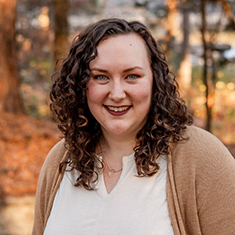Communities in Guatemala’s Western Highlands have struggled for decades under persistent exclusion. This exclusion has limited local governments’ capacity to serve residents and caused over-reliance on central government funds. Many of this region’s 2.3 million residents have lacked for food security and public services such as water and sanitation, schools, and citizen safety. These and other conditions have exacerbated the main drivers that influence migration to the United States: namely, poverty and insecurity. In 2018, more than 60,000 migrants were returned to Guatemala, many to the Western Highlands.
To address this instability, the U.S. Agency for International Development (USAID) launched the Nexos Locales program to help 44 municipalities across the Western Highlands—from dirt-road villages to small cities—to improve public service delivery and increase citizen participation in the local development agenda, leading to more self-reliance.
Working exclusively with local and national partners, Nexos Locales has produced encouraging results in:
- Laying foundations for civic participation and building the capacity of institutions such as Guatemala’s National Association of Municipalities (ANAM).
- Assisting many of the project’s 44 partner municipalities to benefit from more transparent municipal finances for better planning, including increased streams of own-source revenue.
- Increasing the number of citizens participating in local governance and improving public service delivery.
- Developing tools for use in the 44 municipalities that have subsequently been expanded into all 340 municipalities in Guatemala, thanks to the support of the ANAM; these tools have been recognized as best practices in municipal management.

Water quality testing in Santa Cruz Barillas. Photo: USAID Guatemala Nexos Locales.
Increasing Local Revenues
By boosting their incomes, municipalities in the Western Highlands are improving their ability to provide public services and allocate resources that meet citizen needs. During Year 4 of Nexos Locales, 37 of the project’s 44 partner municipalities increased their own-source revenue by an average of 53 percent by collecting taxes and fees more fairly and efficiently while reducing arrears.
Nexos Locales assisted these locales by:
- Incentivizing municipalities that register 75 percent of their water users with in-kind grants for barcode equipment, enabling faster billing and payments—27 of 44 partner municipalities thus far have qualified for the equipment;
- Establishing geographic information systems that strengthen billing processes and identify citizens who owe taxes or fees;
- Creating radio spots to encourage citizens to pay fees and become aware of their role in local development; and
- Supporting municipal councils to craft and pass municipal legislation to enforce debt collection.
Partner municipalities have increased revenues by an average of 1,062,136 Guatemalan quetzal (US$139,754) thanks to their improved fiscal practices.

Launch of the #SanRafaInfo smartphone app in San Rafael Pie De La Cuesta. Photo: USAID Guatemala Nexos Locales.
Mobile App Unlocks City Hall
Residents and the municipal government of Chiantla, located in the department of Huehuetenango, population 93,000, expressed a desire to increase transparency and communication over local issues. To do so, Nexos Locales collaborated with citizen groups and officials to develop and launch the #SomosChiantla (“we are Chiantla”) mobile app. The easy-to-use app enables residents with smartphones to follow the budget and interact more easily with city officials and departments.
By using the free app, Chiantla residents may:
- View itemized municipal revenues and expenditures;
- Track municipal procurements and updates on local projects;
- Report local issues such as potholes, broken street lights, and leaking water pipes, including uploading photos and GPS locations; and
- Discuss municipal matters via an online forum accessed through Facebook.
The municipality refreshes #SomosChiantla daily with updated figures and information.
“What the app does is make clear that there is civic responsibility on both ends,” said Mayor Carlos Alvarado Figueroa, whose city earned national honors for this work. “There is responsibility on the part of the municipality to be careful with expenditures, and on the part of citizens to contribute both financially and with attention to decision-making around those expenditures.”
More than 1,700 Chiantla residents have downloaded the app, and e-dialogue is picking up concerning the city’s finances and services. Nexos Locales has since replicated and launched the app in two more municipalities—San Rafael Pie De La Cuesta (pop. 15,000) and Sacapulas (pop. 12,000)—each with municipal governments committed to increasing transparency. These three municipalities demonstrate that by using 21st-century smartphone technology, citizens can increase their understanding of the budget and public spending.
The #SomosChiantla template has proven easily transferable to other municipalities—in fact, DAI’s Center for Digital Acceleration is replicating the app’s human-centered design process in Afghanistan’s major cities. The USAID-funded Strong Hubs for Afghan Hope and Resilience project is undertaking the Afghan work.

Committee that produced the Citizen Charter for San Marcos on water provision. Photo: USAID Guatemala Nexos Locales.
Creating Citizen Charters
Nexos Locales is helping municipalities to craft Citizen Charters—agreements between residents and their municipal government on the standards expected of each to ensure adequate service provision:
In San Marcos, a working group of civil society, business, municipal, and water/sanitation officials soft-launched a Citizen Charter on water service provision. The Charter records agreements between the municipality and citizens—including 8,000 registered water customers—on quality standards and the responsibilities of each party.
In La Libertad, the Municipal Council formalized responsibilities in solid waste collection. The Charter is expected to launch later this year, but many customers are already upholding their end of the deal. Thanks to identifying delinquent users and more proactive billing measures, fee collections amounted to Q11,940 (US$1,613) in the first quarter of 2019 compared with Q4,410 (US$595) in Q1 of 2018, a year-over-year increase of 271 percent.
In Barillas, Nexos Locales used GPS to analyze and map the urban water system’s critical points, which alerted officials to inequitable water distribution in the urban center. The mayor viewed this inequity as a key opportunity to improve service prior to officially rolling out the Citizen Charter with updated regulations following local elections.
Nexos Locales has helped municipalities establish record-keeping practices and develop systems to track service provision. This monitoring enables continuous feedback and evaluation of services, helps resolve conflicts, and increases end-users’ understanding of the constraints that municipalities face in meeting citizen demand for services.

Youth leadership event organized by local partner Barbara Ford Center for Peace in Santa Cruz de Quiche. Photo: USAID Guatemala Nexos Locales.
Scaling Municipal Tools to National Networks
In assisting its partner municipalities, Nexos Locales developed 24 good governance tools that are free to use for city halls, development councils, technical and administrative units, and civil society organizations across Guatemala. These tools include practical primers for:
- Mayors and municipal councils;
- Local economic and social development;
- Municipal financial management and operations; and
- Organizing youth, women, and neighborhoods to become involved in civic matters.
Nexos Locales is partnering with ANAM, the Finance Ministry, and the Municipal Administrative Financial Assistance Directorate to expand the use of this municipal toolbox, which is available online.
By aiming to connect project-made tools with nearly 300 municipalities outside of Nexos Locales’ coverage, the project is multiplying USAID’s investment.

Municipal development authority breakout session in Sibinal. Photo: USAID Guatemala Nexos Locales.
The Road Ahead
With five years of project implementation completed and three to go, Nexos Locales is focused on ensuring the sustainability of its programming. The project team is emphasizing its advocacy for a Municipal Career Service Law, which would establish a career track for municipal employees and reduce staff turnover after elections. The law will help secure Nexos Locales’ investment in municipal training and eliminate the hiring of unqualified staff, which in turn will improve efficiency in each city hall and service provision for citizens.
To continue building human capacity, the project is developing online videos and tutorials through a grant to ANAM. These videos will be available to all 340 municipalities and provide valuable information for municipal employees, civil society, and public officials on key topics related to effective governance.
Nexos Locales is also ensuring its long-term investment in the region by connecting municipalities with key central government entities to guarantee that local officials know how to leverage their positions to receive technical support from corresponding agencies, ministries, and institutions.
By presenting innovative solutions to complex problems, Nexos Locales’ work in 44 municipalities in the Western Highlands of Guatemala is transforming how local officials govern, enabling them to provide their constituencies with improved services and an increased sense of self-reliance.
DAI’s Vince Broady is Chief of Party for USAID Nexos Locales.




